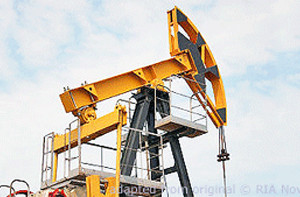Despite Claims, Ukraine Not Free Of Russian Energy Dependence

(Oilprice.com – Colin Chilcoat – April 25, 2016)
Now more than two years on since the revolutionary events on Maidan and Russia’s subsequent annexation of Crimea, Ukraine is still largely without its footing. Political infighting is again on the rise and the specter of massive corruption persists, stymying what have been positive, albeit small, steps toward reform. The country’s energy sector – but one of the shaky pillars of its future – is particularly directionless, oscillating between self-assurance and habit on its way to damaging ambiguity.
Overshadowed by events in Syria, the situation in Ukraine remains less than pleasant. The Ukrainian hryvnia continues to founder, the nation’s inflation rate is second worst globally ahead of only Venezuela, and middling growth projections provide little hope for a nation whose GDP contracted nearly 10 percent last year. Further, fighting has intensified on the outskirts of Donetsk in recent weeks, culminating in the capture of a United Nations’ monitoring officer.
The mixed signals and mottled priorities from the leadership aren’t particularly surprising, because, well, the leadership isn’t exactly well-defined. Aside from a vague goal to step out from under Russia’s sphere of influence, Ukraine’s post-revolutionary coalition government simply has little in common. Resignations from a handful of reform-minded ministers and political appointees give face to the already very public dysfunction. With speaker of the parliament – and ally to President Petro Poroshenko – Volodymyr Groysman tapped to replace the outgoing Arseniy Yatsenyuk as Prime Minister, the outlook is more clearly one of further obstruction.
In his departing statements Yatsenyuk assessed his country’s progress under his watch positively, going so far as to say Ukraine is now free from the yoke of Russian energy dependence. To be sure, there is a degree of truth to that statement.
Direct Russian gas exports to Ukraine fell from 14.5 to 6.1 billion cubic meters (bcm) in 2015, or some 58 percent. In fact, Ukraine hasn’t purchased Russian gas in nearly five months, substituting the needed volumes with more competitive deliveries from across Europe. The improvised and patchwork flowback has and will work for a time, but the practice isn’t especially sustainable.
EU gas consumption is lower than expected, but rising. Conversely, EU gas production is experiencing marked declines. Further, Norwegian volumes are expected to shrink some 7 percent following record output in 2015.
In fact, Ukraine’s relatively painless transition to greater self-sufficiency is largely due to the country’s sharp drop in consumption – a product of war and much delayed price hikes, not efficiency. Natural gas consumption fell 21 percent to 31 bcm in 2015, with the heaviest declines occurring in the war-torn and industry-heavy Donetsk and Luhansk regions. As industrial output continues to struggle, consumption is expected to fall another 20 percent in 2016.
With nuclear and coal capacity either maxed out, reliant on a cooperative Russia, or both, energy efficiency and domestic gas production present the best avenues for long-term energy security. Of course, these aren’t new ideas; Ukraine has long targeted energy sector modernization.
Necessity and a fair bit of outside pressure have moved the dial recently (see: restructured royalty rates and reduced subsidies), but tangible results are still lacking. After passing a cornerstone gas market law in April of last year, Ukraine’s gas market is no closer to de-monopolization. The gas network will not be unbundled in 2016 as originally planned; the Stockholm Arbitration Court’s forthcoming decision on Gazprom’s claim against Naftogaz will provide a clearer timeline. As for other privatization delays, the timetable is even less certain.
With little cause for optimism, investors – both public and private – are getting cold feet. More mixed signals are just about the only certainty – more targets, but irresolute political will.
